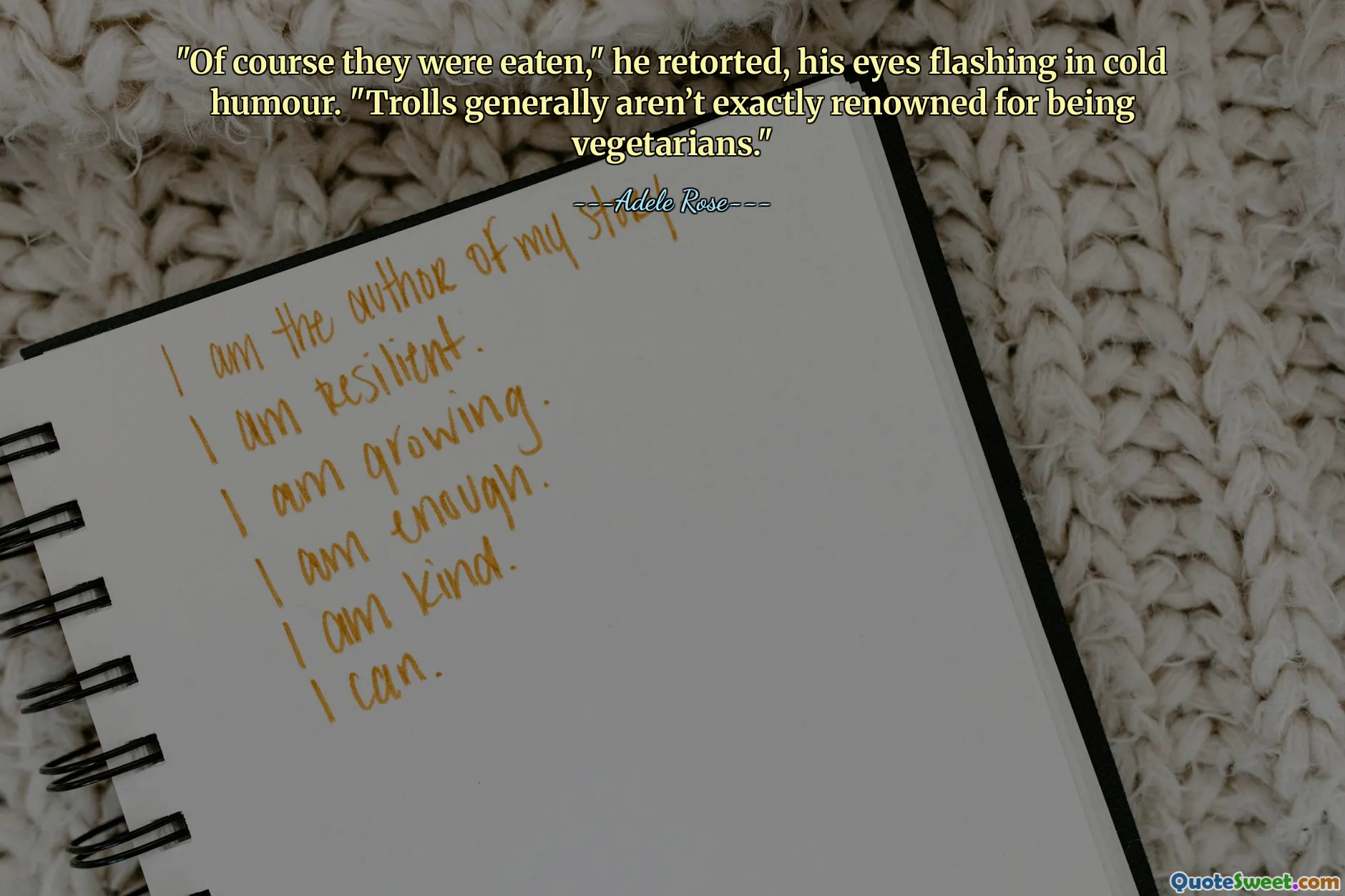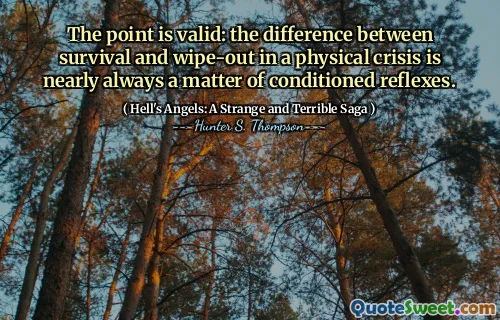
"Of course they were eaten," he retorted, his eyes flashing in cold humour. "Trolls generally aren’t exactly renowned for being vegetarians."
This quote offers a glimpse of dry wit and dark humor wrapped around a seemingly grim subject: the consumption of certain creatures, presumably lesser beings or even innocents, within a fantasy context. The speaker's retort reveals a blend of casual acceptance and a hint of irony about the predatory nature of trolls—mythical creatures commonly depicted as fierce and vicious. The cold humor suggests a detachment from empathy, emphasizing a world where survival and brutality are commonplace, normalizing what might otherwise be considered horrifying. The line balances chilling pragmatism with a subtle comedic edge, using the unexpected twist of vegetarianism as a rhetorical device to mock or downplay the cruelty involved. This duality—for survival comes at a harsh price; yet, there’s space for sardonic humor—resonates deeply within storytelling, as it exposes the moral ambiguity and raw realities behind fantasy or folklore. Such a quote encourages readers to examine themes like the nature of evil, survival ethics, and the complex relationship between humor and suffering. The interplay between unfazed rationalism and underlying darkness makes it thought-provoking and memorable, as it compels us to confront uncomfortable truths with a smirk, acknowledging the absurdity in merciless worlds where hospitality towards prey is nonexistent. Overall, it’s a striking reminder of how narrative voice can shape emotional impact, shifting tension into a sharp, dark moment of levity.








